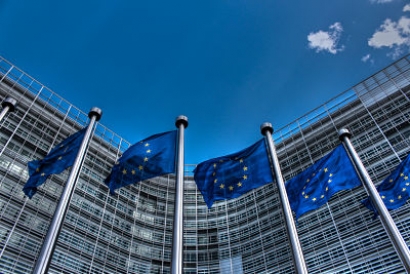
The study finds that if the EU strongly reduces its energy consumption while multiplying its renewable energy capacities and ramping up support for emissions reductions in developing countries during this decade, it can still contribute its fair share to limit global temperature rise to 1.5°C.
As a rich economy, as well as a major historical emitter, the EU should strive for emission reductions of at least 65 percent below 1990 levels by 2030. Only such a substantial cut will represent a sufficient contribution by the EU within its own borders to achieving the Paris Agreement goal and will place the EU on a 1.5°C aligned decarbonisation pathway, as illustrated by Climate Analytics’ new report.
The report, “1.5°C Pathways for Europe: Achieving the highest plausible climate ambition”, examines 1.5°C compatible climate scenarios, deriving a set of emission reduction and energy mix pathways for the EU. These 1.5°C compatible pathways to 2030 are presented for the EU27 and for nine Member States.
“The urgency to cut greenhouse gas emissions has never been greater and we get once again scientific evidence that the EU must go for a higher climate target” said Climate Action Network Europe’s director, Wendel Trio. “Putting all hands on deck and cutting emissions by at least 65 percent by 2030 can avert the worst impacts of climate change”.
Ryan Wilson, Climate and Energy Policy Analyst at Climate Analytics and one of the report authors, added that the study demonstrates that technically, steep and fast emission reductions in line with the Paris Agreement are fully feasible for the EU and its Member States but that it's a matter of showing political courage and leadership to make that transition happen.
Going beyond the EU’s current net 55 percent emission reductions target to ensure the EU is sufficiently contributing to the achievement of the Paris Agreement’s 1.5°C long-term temperature goal, the report is intended to inform the strengthening of the current target and the on-going legislative process on the bloc’s key climate and energy laws.
For additional information:

